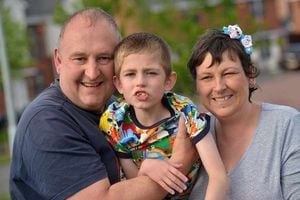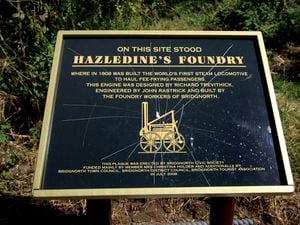Mystery over behavioural problems of Nile, seven
The mother of a seven-year-old boy with undiagnosed behavioural problems hopes a new NHS project will finally give her answers.

Nile Thackery Lunn, a pupil at Wednesbury Oak Academy, has so far proved a mystery to doctors and his complex problems have become progressively worse as he has got older.
Now his mother, Kelly Thackery, hopes a detailed analysis of his entire genetic make-up will reveal a diagnosis, helping him and potentially millions of other people in the future.
As part of the 100,000 Genomes Project, Nile's entire genome will be sequenced and compared with his parents' DNA and the results of other people who may have similar symptoms.
It may throw a lifeline to Kelly who has become frustrated over a lack of answers. She believes his symptoms show a degree of autism and ADHD.
She said: "Nile is quite delayed in his development. He doesn't like change and can become aggressive. Sometimes he just has a meltdown.
"People just see a naughty child, and without any answers on his condition it's difficult to explain to people why he behaves how he does.
"If we had a diagnosis then people could listen and try to understand. We've felt helpless but now we have had the genome testing we are hoping for some answers."
The 100,000 Genomes Project aims to help people with rare diseases and some cancers. Nile, who lives in Bilston, is the first boy from Wolverhampton to take part.
Teams across a range of disciplines at The Royal Wolverhampton NHS Trust, which runs New Cross Hospital, have adopted new patient assessments and ways of working to make sure they can play their part and identify patients who will benefit.
Charlotte Hitchcock, one of three regional genomics ambassadors from the West Midlands Genomic Medicine Centre, said the project would look at "every single page" of the human 'instruction book.'
She said: "The whole point is to create the way that healthcare is provided in the future.
"The project will take a large number of samples to link whole lifetimes of medical records with a person's genome data. The richness of this data can help to understand disease and to tease apart the complex relationship between our genes, what happens to us in our lives and illness.
"As well as possibly benefitting individuals who take part, the 100,000 Genomes project will alter the whole NHS perspective, and will pave the way for personalised medicine, predicting how well a person will respond to a treatment or finding one that will work best for them."
For Kelly, the project could mean an end to a long wait for answers.
She added: "There is no-one like Nile. He is the only one who has got this.
"His behaviour is unfortunately getting worse the older he is getting.
"We have been fighting since he was 18 months for answers and we are still none the wiser."





